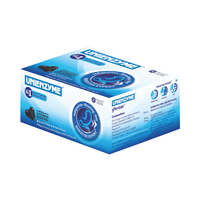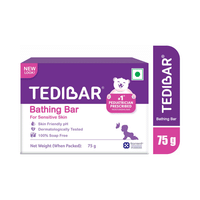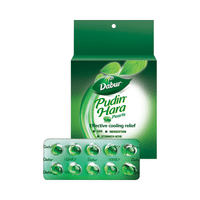Furatop Tablet

Rs.8.10for 1 strip(s) (3 tablets each)
food interaction for Furatop
alcohol interaction for Furatop
pregnancy interaction for Furatop
lactation interaction for Furatop
food
alcohol
pregnancy
lactation
Furatop Tablet is to be taken with food.
None
None
CAUTION
Consuming alcohol while taking Furatop Tablet may cause symptoms such as flushing, increased heart beat, nausea, thirst, chest pain and low blood pressure (Disulfiram reaction).
UNSAFE
Furatop Tablet may be unsafe to use during pregnancy. Although there are limited studies in humans, animal studies have shown harmful effects on the developing baby. Your doctor will weigh the benefits and any potential risks before prescribing it to you. Please consult your doctor.
CONSULT YOUR DOCTOR
Furatop Tablet is probably unsafe to use during breastfeeding. Limited human data suggests that the drug may pass into the breastmilk and harm the baby.
CONSULT YOUR DOCTOR
SALT INFORMATION FOR Furatop
Metronidazole(200mg)
Uses
Metronidazole is used in the treatment of bacterial infections and parasitic infections. It is used in infections of the brain, reproductive system, gastrointestinal tract, skin, vagina, and other areas of the body.
How it works
Metronidazole is an antibiotic. It kills the bacteria and other microorganisms that cause infections by damaging their DNA.
Common side effects
Nausea, Vomiting, Paresthesia (tingling or pricking sensation), Agitation, Back pain, Blindness, Blurred vision, Altered speech pattern, Confusion, Decreased vision, Depression, Dizziness, Impaired coordination, Seizure, Slurred speech, Encephalopathy, Psychotic disorder, Abnormal liver function tests, Difficulty in urination, Yellow discoloration of eye, Yellow discoloration of skin, Gastrointestinal pain
Dicyclomine(20mg)
Uses
Dicyclomine is used in the treatment of abdominal pain and irritable bowel syndrome.
How it works
Dicyclomine is an anticholinergic medication. It works by relaxing the muscles in the stomach and gut (intestine). It stops sudden muscle contractions (spasms), thereby relieving cramps, pain, bloating, and discomfort.
Common side effects
Nausea, Dizziness, Blurred vision, Dryness in mouth, Nervousness, Drowsiness, Headache, Vomiting, Constipation, Psychosis, Diarrhea, Photophobia, Dyspepsia, Abdominal pain, Insomnia (difficulty in sleeping), Confusion, Hallucination, Dry skin, Reduced bronchial secretions, Palpitations, Fast heart rate, Cycloplegia (paralysis of the ciliary muscle of the eye), Dilatation of pupil, Discomfort when urinating, Rash
Loperamide(2mg)
Uses
Loperamide is used in the treatment of diarrhea. It should not be used in patients with dysentery (diarrhea with blood).
How it works
Loperamide is an anti-diarrhoeal medication. It works by slowing down the contraction of the intestines thereby decreasing the speed at which the contents pass through it. This allows more time for reabsorption of fluids and nutrients, making the stools more solid and less frequent.
Common side effects
Constipation, Nausea, Headache, Flatulence, Dizziness, Sleepiness, Abdominal pain, Abdominal discomfort, Dryness in mouth, Vomiting, Dyspepsia, Hypersensitivity, Loss of consciousness, Stupor, Change in alertness, Hypertonia (increased muscle tone), Coordination disorder, Abdominal distension, Ileus, Megacolon, Bullous eruptions, Toxic epidermal necrolysis, Erythema multiforme, Angioedema (swelling of deeper layers of skin), Red spots or bumps, Itching, Urinary retention, Fatigue
SUBSTITUTES FOR Furatop
No substitutes foundExpert advice FOR Furatop
- Metronidazole treats infections caused by bacteria and parasites.
- It may cause side effects like nausea, stomach upset, and a metallic taste in the mouth.
- Metronidazole used in a high dose or for a prolonged time increases the risk of side effects such as nerve damage. Take it only as prescribed by your doctor.
- Do not drink alcohol during or for 2-3 days after treatment with this medicine. You may develop nausea, vomiting, flushing and headache.
- Inform your doctor if you have liver disease. Your dose may need to be adjusted in severe liver disease.
Frequently asked questions FOR Furatop
Metronidazole
Q. How long does Metronidazole take to work?
Usually, Metronidazole starts working within 1 hour of its ingestion. However, it may take around 2-3 days to make you feel better while taking Metronidazole. If you do not experience any significant reduction in your symptoms, consult your doctor.
Q. Can I drink alcohol while using Metronidazole?
No, avoid drinking alcohol while taking Metronidazole. Moreover, you should avoid alcohol even after 3 days of finishing the complete course. Drinking alcohol can cause an unpleasant reaction (disulfiram like reaction) with symptoms such as stomach pain, nausea, vomiting, headache, flushing or redness of the face.
Q. Can the use of Metronidazole cause metallic taste?
Yes, Metronidazole may cause a temporary metallic taste. This metallic taste can be reduced by staying hydrated, brushing teeth after the meals and chewing sugar-free gum or mints.
Dicyclomine
Q. Is Dicyclomine safe?
Dicyclomine is safe if used at prescribed doses for the prescribed duration as advised by your doctor
Q. Is Dicyclomine gluten free?
Dicyclomine active drug does not contain gluten. Read the label instruction of the brands your doctor prescribes you, for gluten content
Q. Does Dicyclomine help nausea?
Dicyclomine is not known to relieve nausea. Nausea is a common side effect of Dicyclomine.
Loperamide
Q. Is Loperamide safe?
Loperamide is relatively safe if used as recommended. In case of any side effects, consult your doctor.
Q. What is Loperamide used for?
Loperamide is used for treating short-term or long-term diarrhea, with or without any associated disease.
Q. Can Loperamide be used for IBS?
Loperamide may be used in few cases of IBS but please consult your doctor before its use.






















